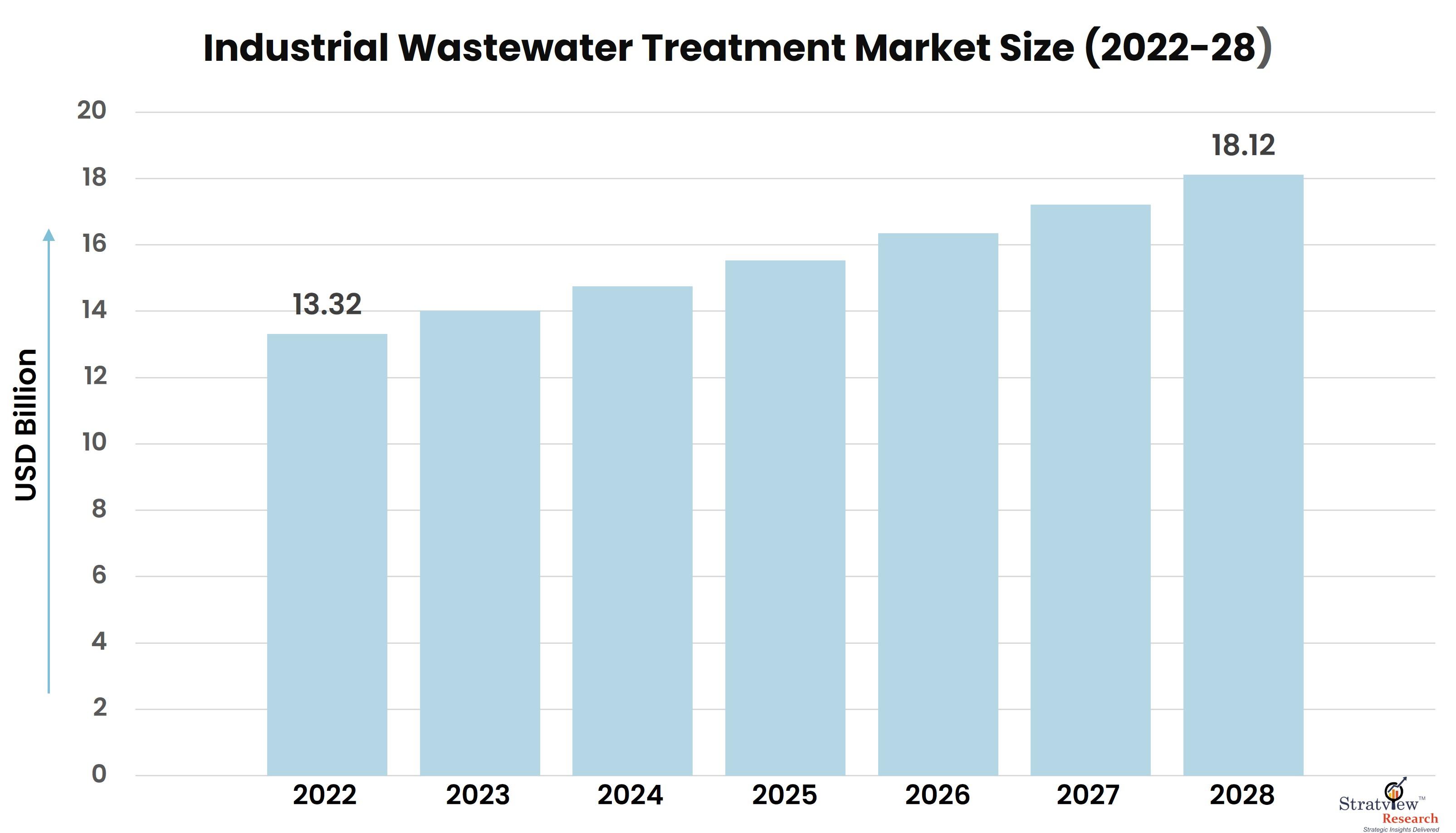The industrial wastewater treatment market is experiencing robust growth driven by several key factors that highlight the importance of environmental sustainability and regulatory compliance across industries worldwide. As industries expand and environmental regulations become more stringent, the demand for effective wastewater treatment solutions continues to rise. This article explores the primary drivers behind the growth of the industrial wastewater treatment market.
According to Stratview Research, the industrial wastewater treatment market was estimated at USD 13.32 billion in 2022 and is likely to grow at a CAGR of 5.26% during 2023-2028 to reach USD 18.12 billion in 2028.
1. Stringent Environmental Regulations
One of the primary drivers of growth in the industrial wastewater treatment market is the implementation of stringent environmental regulations by governments globally. Regulatory bodies are imposing strict limits on the discharge of pollutants into water bodies, air, and soil, compelling industries to invest in advanced wastewater treatment technologies.
Compliance Requirements: Industries must comply with regulations such as the Clean Water Act in the United States, the Water Framework Directive in Europe, and similar laws in other regions. These regulations mandate the treatment of wastewater to meet specific quality standards before discharge.
2. Increasing Industrialization and Urbanization
Rapid industrialization and urbanization, especially in emerging economies, are driving the demand for industrial wastewater treatment solutions. As industries expand their operations to meet growing consumer demand, the volume and complexity of wastewater generated increase, necessitating efficient treatment processes.
Water Scarcity Concerns: In regions experiencing water scarcity, industries are under pressure to optimize water usage and recycle treated wastewater for non-potable purposes. This trend further fuels the demand for advanced wastewater treatment technologies.
3. Focus on Water Reuse and Recycling
The emphasis on sustainable water management practices, including water reuse and recycling, is another significant driver of market growth. Industries are increasingly adopting wastewater treatment technologies that enable the recovery of water for various applications, thereby reducing freshwater consumption and conserving natural resources.
Cost Savings: Water reuse and recycling not only contribute to environmental sustainability but also offer economic benefits by reducing operational costs associated with freshwater procurement and wastewater disposal.
4. Technological Advancements in Treatment Processes
Advancements in wastewater treatment technologies play a crucial role in driving market growth. Innovations such as membrane filtration, advanced oxidation processes (AOPs), biological treatment systems, and nanotechnology-based solutions have enhanced the efficiency, reliability, and cost-effectiveness of wastewater treatment processes.
Energy Efficiency: Modern treatment technologies focus on energy efficiency and lower carbon footprint, aligning with global sustainability goals and corporate environmental responsibility initiatives.
5. Growing Awareness and Corporate Responsibility
Increasing public awareness about environmental issues and corporate responsibility is influencing industrial practices and driving investment in sustainable wastewater treatment solutions. Stakeholders, including consumers, investors, and regulatory bodies, expect industries to adopt responsible practices that minimize environmental impact.
Brand Reputation: Companies that demonstrate a commitment to environmental stewardship through effective wastewater management enhance their brand reputation and appeal to environmentally conscious consumers.
Conclusion
The industrial wastewater treatment market is poised for significant growth driven by stringent environmental regulations, increasing industrialization, focus on water reuse, technological advancements, and growing corporate responsibility. As industries continue to prioritize sustainability and regulatory compliance, the demand for innovative wastewater treatment solutions will continue to expand. Manufacturers and service providers in the wastewater treatment sector have opportunities to capitalize on these drivers by offering advanced technologies and tailored solutions that meet the evolving needs of industrial clients worldwide.



